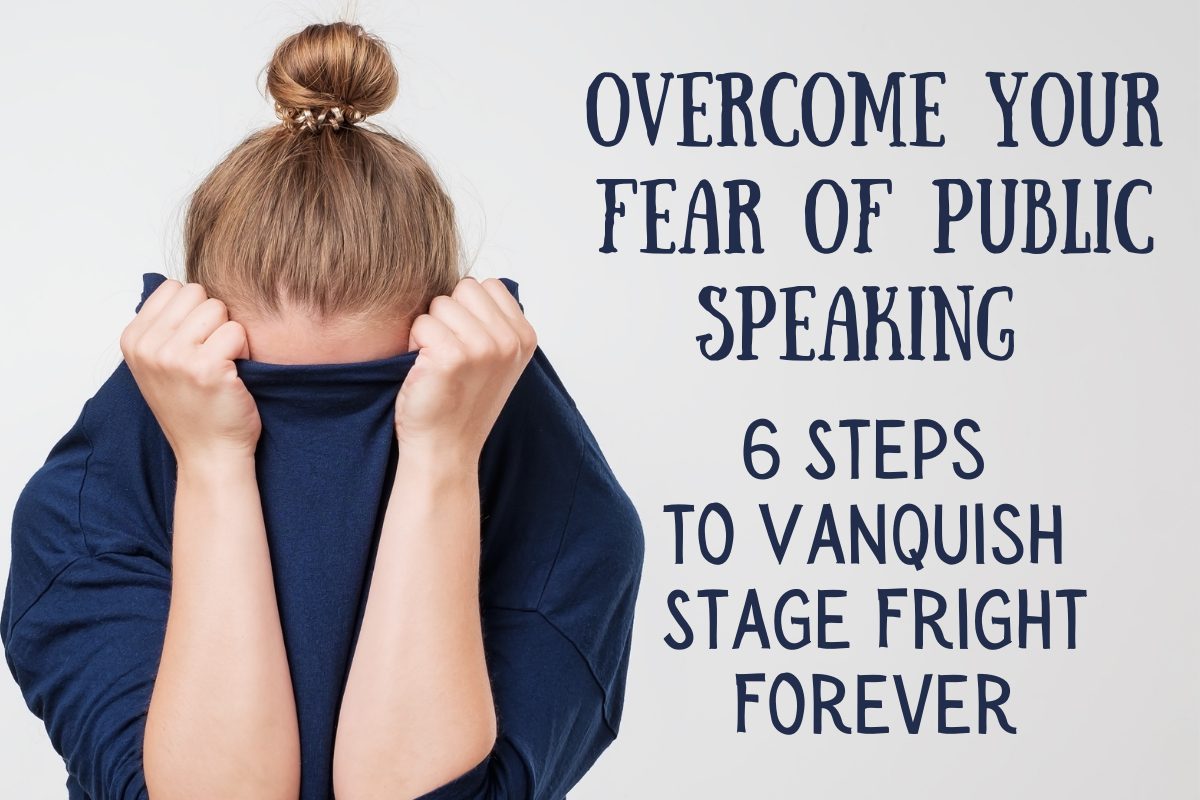Spotlight on Dietitian Speaker Heidi Skolnik
Heidi Skolnik is no rookie when it comes to professional speaking. Having worked with quite a few heavy hitters in professional sports, she pirouetted into professional dancing and hit a homer with The Athlete Triad Playbook. Read on as she gives DietitianSpeakers.com a backstage tour of her front-row career.

AC: You’ve done so much in your time as a dietitian. Give our readers some background about your work and how it’s changed over the course of your career.
HS: My educational background includes a Master’s degree in Exercise Science followed a few years later by a second Master’s degree in Human Nutrition. I began my career in corporate fitness, yet Sports Nutrition has always really been my jam. I used to work with the Giants football team (18 years) and the Mets (15 years) and the Knicks (7 years) , and at the Women Sports Medicine Center at Hospital for Special Surgery for twenty-five years. Now I work with a lot of dancers and performing artists (Juilliard and School of American Ballet) and bring the sports performance perspective to them as artistic athletes.
One of the things that differentiated me early on was that my approach has always been somewhat experiential. It was never that I had more knowledge than anyone else – there are a lot of people who are way smarter and more knowledgeable than me. My secret power is my ability to translate the science into usable information and accessible information for the population I’m talking to and make it sort of fun and relatable.
I always loved speaking even as a kid. I know for some people speaking is one of their greatest fears. That was just never a thing for me. I always enjoyed it. Early on, when I would go to conferences, I would choose the session on honing your speaking skills over the session on polyphenols.
But somewhere along the way, I became intimidated by the people with greater scientific knowledge, and I thought maybe I don’t know enough. I started going to everything that was very specific in science. I lost sight of what made me a strong speaker and what my skill set really was. I’ve come back to that now, which is exciting.
I believe there’s an evolution within each person’s career, and right now, my focus is on the athlete triad and educating professionals to bring the information to their athletes.
I work with Broadway, at Juilliard, at the School of American Ballet, and I’ve taken the model of sports nutrition to these performing artists who are athletes. I use performance nutrition to motivate them to view their bodies as the instrument for their performance, helping them see the need to stay well-fueled and nourished, as opposed to thinking of food and diet only through the lens of weight loss and weight management, a la the common diet culture.
AC: How would you say you made the transition from speaking for free to then being paid for speaking, and was it challenging for you in the beginning?
HS: In the beginning, I don’t know that I spoke for free; I just didn’t charge that much. Along the way I did realize that doing it for free was unfair to both myself and my colleagues and the field. We’re all in this together and all elevating the field and pushing it forward, and we’re all helping each other out. Every time someone else gets a success, they open that door more for everyone else.
Early on I would take every opportunity I could to speak. As I got better, I found that every time I spoke, I got more gigs. Putting myself out there was really worth it and taking risks early on really paid off and led to lots of other opportunities. I wouldn’t have moved forward as quickly as a speaker had I not been in front of those groups.
I also started at a time when early on I didn’t have a lot of – I don’t want to say competition because I don’t view my colleagues as competition – but there weren’t as many people out there talking about sports nutrition. So, it was really more about opportunity and ability. At the same time, the opportunities arose where people offered me more money without me even asking.
As I got busier and busier, as I got better and better, as I had more and more demands, it was easier to charge and be more conscientious about what I chose to do and how I wanted to spend my time. Having more options made me have to become more thoughtful, because there’s only so much time and the burnout would be incredible.
AC: How do you decide what to charge? Not necessarily the amount, but the process you go through in your mind?
HS: When someone asks me to speak for an hour, my fee is not for that hour. My fee is for the hours that go into preparing for the hour I’ll speak. There are years in that preparation. When I get up and speak, I’m giving you an engaging, knowledge-filled, experiential, hopefully behavior-change-prompting hour that is worthwhile of your time, and you’re paying for all of that. You’re not really paying me for the hour.
I will also say, and this is very humbling to say out loud, that I charge less now than I did at the peak of my career because demand ebbs and flows and I’m with a different population. I’m okay with that because I understand the market. There was a time in my career where lots of things were flowing to me as opposed to me reaching out to find opportunities. That’s a different place to be.
I’ve learned to understand where I fit in the market. I understand the demand from the market as well as the other demands on my time. For me, speaking is part of my income; it’s a service I offer, not just something that I do on the side. There’s only so much I can give away for free before I’m not earning a living. Sometimes I choose to speak for less money for a charity or in the community for less than I might charge a corporation or in a spokesperson situation. There’s lots of different factors that go into the fee and it has to be individual. For example, I have to keep in mind that performing arts doesn’t have the same kind of budget that professional sports do. But there’s so much that I love about working with dancers that that’s okay with me.
AC: Thank you for sharing that process. How would you suggest a newer dietitian go about the process of determining what fee to charge? Especially if they’ve been speaking for free so far.
HS: Always keep in mind that you’re selling information. It’s your product. If your product was running shoes or blouses or microphones, you wouldn’t just go out and give them out for free. You don’t have to give your knowledge away, either. You’ve worked really hard for that and deserve to be paid for your time.
With that in the background, you have to individualize. What works for me wouldn’t work for someone who lives somewhere else in the country, or speaks to different organizations, or different topics or populations.
 It’s different for a local school versus on a national scale. But ultimately, I would say you need to charge for your time or recognize if it is an opportunity in which you get to hand out business cards or handouts with your name on it in a place that you could get referrals from. You might then consider a lower fee or free as a cost of doing business; essentially the cost of that talk is your marketing budget. There’s a reason you’re doing it for free.
It’s different for a local school versus on a national scale. But ultimately, I would say you need to charge for your time or recognize if it is an opportunity in which you get to hand out business cards or handouts with your name on it in a place that you could get referrals from. You might then consider a lower fee or free as a cost of doing business; essentially the cost of that talk is your marketing budget. There’s a reason you’re doing it for free.
And it may not be about money. If you really want that gig, you can take it, regardless of the pay. But you shouldn’t ever forget that you can also always say, “No, thank you.” They can find someone who’s more of a beginner, someone who’s starting out, who may give the talk for less if the group can’t pay what you need. It’s not your responsibility to give all the talks.
With that said, I think they’re probably going to get a different product for a different budget. Somebody starting out might do a fine job, but not the same job that you would do at this stage in your career. If a client wants you, this is your fee. You need to know how much wiggle room you have before you need to say no.
However, you decide your fee, and whatever you agree to, you have to feel comfortable and confident, and not resentful. If you feel like, “Why am I doing this?”, something has gone wrong in the process. You should be speaking because you feel valued or you feel it gives you value.
AC: I love the idea that feeling valued and appreciated is a benefit. Overall make sure there’s value, whatever form that takes. And I like the comparison that speaking is your product. That’s a really good way to put it.
What about the actual presentation delivery? What do you recommend to give a really excellent presentation?
HS: That’s a tough one because there are so many different styles. I think it’s having a style and knowing your message. Engaging is really important, but there are a lot of ways to be engaging. Feeling comfortable with what you’re presenting. Showing some personality.
Something I still struggle with is finding the right amount of material for the time allotted. I often put in too much and it actually takes away from the strength of my presentation. You need to know what material is appropriate for the population you’re speaking to.
What’s great is when you give a really great presentation and you get that immediate feedback, where you just feel like you got it right and you can feel the energy in the audience, and they’re with you and they respond to what you’re putting forth… and the feedback is good, and you’re just in your groove and you get other gigs from it, because that’s one way you do know that it went well. So that feels great.
AC: I can feel your enthusiasm through the phone! What about the glitches? Does anything stand out that you just can’t believe it happened, but you just had to keep going?
HS: Oh, gosh, yes. Talk about being vulnerable. I have had a couple of mortifying experiences that come to mind.
When I was in my 20’s I worked with the Mets minor league baseball teams. For background, like many women, my weight changes over time, but I was confident with it, it didn’t mean a lot to me. So, I walk into this minor league site, prepared to give my talk and first thing one player yells out, “Wow, you gained weight since spring training!” Oh, my goodness.
And then another one of the players said, “Hey, leave her alone.” And I’m sitting there, mortified that my body is now the center of attention thinking THIS IS NOT WHY I’M HERE. Somehow, I was able to just say, “Let’s get going,” and was professional and moved through and did my thing.
Another time, more recently, I was talking to a group of coaches, male coaches at a university, and once again I was the only woman in the room. There was somebody in the room who had been invited who wasn’t a coach. I don’t know how I knew – I guess it’s just experience – I just knew. After I gave this whole talk, I’m taking questions from the audience.
And you know how it is – usually you get these very genuine, sincere, questions, and they listen and appreciate your answers. And then sometimes there’s somebody in the audience who isn’t really asking a question. They just want to tell you that they disagree, or they think they know better, but the way they do it, they’re not really asking a question. Which is this person.
This person raises their hand and I call on him, and he gives me one of those non-question questions, telling me what I should have said. And so, I say to him, “I’m sorry, I don’t think I really heard a question in there. Is there a question that you have?” He sort of repeats himself in a really rude way. It wasn’t like a healthy discussion of, “Here’s my view, here’s your view. Let’s discuss the science,” because that’s totally legit. This is more of a challenging, demeaning situation. So, I repeated myself, and said, “Excuse me, if you have a question, I’m happy to hear it, but if you’re just telling me what I should know, I’d like to move on.”
And he says, right in front of everyone, loud enough for everyone to hear, he says, “F*** me.” And the whole room was staring, all these men looking at me and how I was going to handle this situation. Can I handle this? Was I going to shy away? And I just came back full force, and I hope you’re not sorry you asked, because somehow, I stayed totally calm and said, “Well, usually I require dinner first, but I’m happy to meet you after the session.” And all these coaches started laughing and the guy was kind of put in his place.
Looking back as I tell you these stories, I realize they had nothing to do with the content, which is more traditionally what I’d be worried about. Knowing all the science wouldn’t help someone get through it, right? It was really about confidence and being able to get through these adverse situations and keep my professionalism going.
AC: Both of those experiences could easily get anyone flustered! The fact that you were able to get through them, knowing who you are as a speaker, without letting them get the best of you is amazing.
HS: You can’t see me blushing, but I am.
AC: Any advice for our readers to be prepared for those uncomfortable situations? Well maybe not THOSE exact situations, but intimidating situations in general?
HS: Yes. One of the best pieces of advice I got along the way when I was learning different skills around speaking is that you can simply own your own experience. I think Jessica is fabulous at this, saying “This is my opinion…” or “In my experience…” without saying that everyone has to do it her way. In other words, it frees people to disagree with you without making it into a battle. Because once it becomes my experience or my opinion as a practitioner or as a speaker, you can’t really argue with that, right? So now I say things like, “This is what I have found when I work with clients,” or “This is what works for me.” That doesn’t mean it’s the right way, or the only way, or that you shouldn’t do it differently.
Learning when to give the facts versus when to put forth my experience has been helpful in being able to stand in front of an audience of other professionals, which I still find intimidating. They know as much or more than I do, but I still come to the stage with twenty-five years of experience and that does mean something.
Added to that, it’s key to remember that you’ve been asked to speak. People are asking for your experience, your vantage point, your insight into the knowledge. That gives me a little more confidence when I’m standing up there because, again, that’s not something that can be argued, right? If you want to have a discussion on the post-exercise window for muscle protein synthesis, all we can do is cite (interpret) the science. And either someone’s going to be right and someone’s going to be wrong, or we may just have to agree to disagree. On the other hand, you can’t really debate me on my experience.
AC: Wow, all great points. Any other words of wisdom for aspiring dietitian speakers?
HC: I suggest taking any and all opportunities to do any trainings or conference sessions about speaking and make it a point to hear speakers you admire if you ever can hear them speak live. It’s okay to give up going to one of the scientific sessions, because honestly, you could read a paper on the stuff you’re missing.
Being prepared can never be underrated or overrated. You have to be prepared. Practice your intro. Practice your closing. Practice, practice, practice. Because if you do, then those situations where you’re asked to speak at the last minute and there’s no time to prepare, you can take those opportunities, because of all the preparation you’ve been doing all along. You have to put yourself out there and take risks, but the preparation is what lets you do it.
And then I guess in summary, you’re going to get better at speaking by speaking. Practice makes progress and the only way you’re going to become the speaker you want to be is by speaking. Be true to yourself to find your personal style. Watch what you like about other speakers, but don’t try to be them, try to be you. You’ll find your superpower by being your true self.
AC: Amazing. Thank you, Heidi, for all the ideas.
To hire Heidi for your next speaking engagement visit her website nutritionconditioning.net
Follow Heidi on social media: Facebook @HeidiSkolnik, Twitter @heidiskolnik, Instagram @heidiskolnik , and LinkedIn @HeidiSkolnik.

